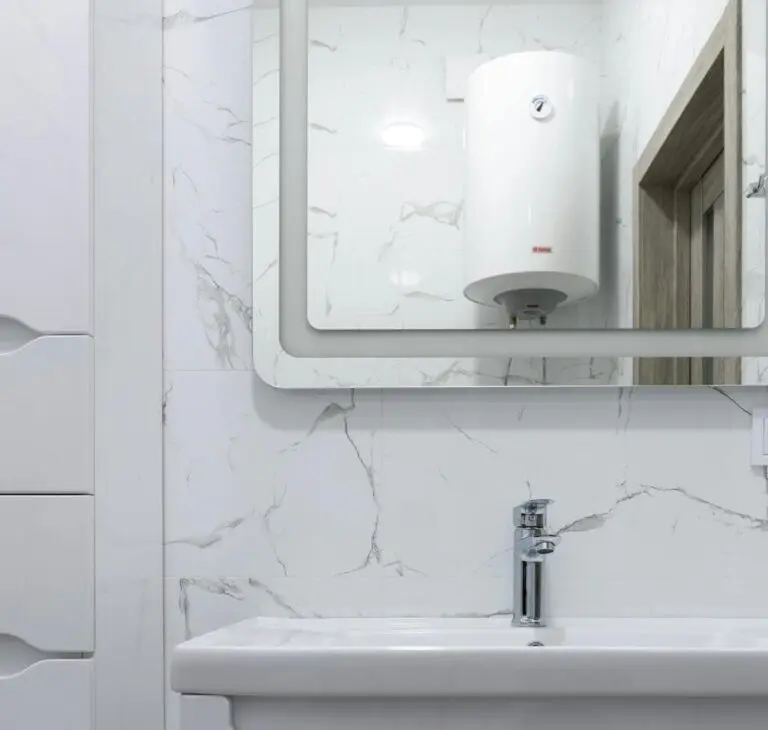So, your boiler is making a racket, huh? Don’t panic. It’s not uncommon for boilers to get a bit noisy from time to time. But what’s causing all that commotion? Let’s dive in and explore some possible reasons why your boiler is being so loud.
Air in the system
One of the most common culprits behind a noisy boiler is air in the system. You see, air bubbles can build up in your boiler’s pipes and radiators, causing strange gurgling or banging noises. It’s like the boiler is trying to tell you it needs a good burp! Luckily, bleeding your radiators can help release trapped air and restore peace and quiet to your home.
Low water pressure
Another possible explanation for your noisy boiler is low water pressure. When the pressure in your boiler drops too low, it can lead to all sorts of clanking and banging sounds. Think of it as your boiler’s way of complaining about being thirsty! Checking and adjusting your boiler’s water pressure can often resolve this issue and silence those pesky noises.
A buildup of limescale and other deposits (kettling)
If your boiler sounds like it’s about to take off into space, the culprit could be kettling. No, not the kind where you boil water for a cuppa – we’re talking about a buildup of limescale and other deposits inside your boiler. This buildup can cause the water to boil and steam unevenly, creating loud rumbling or whistling noises. Descaling your boiler can help prevent kettling and keep things running smoothly.
Faulty pump
Sometimes, the problem lies with the pump in your boiler. If the pump is faulty or clogged with debris, it can cause all sorts of unpleasant sounds, like grinding or screeching. It’s like your boiler is throwing a tantrum because its favourite toy is broken! In this case, you may need to call in a professional to repair or replace the pump and restore peace to your home.

Here’s a short story from one of our happy customers:
Last winter, I was rudely awakened night after night by the cacophony emanating from my boiler. It sounded like a construction site had taken up residence in my basement, and I was at my wit’s end. After weeks of futile attempts to remedy the situation myself, I finally caved and sought professional help.
Enter Silverdale Plumbing. With a reputation for reliability and a no-nonsense approach, they seemed like the obvious choice. I reached out to them, not expecting much, but was pleasantly surprised by their prompt response and no-fuss attitude.
The Silverdale team arrived as promised and got straight to work. They diagnosed the issue – a faulty pump – and wasted no time in replacing it. There were no frills or fancy speeches, just good old-fashioned expertise and efficiency.
As they packed up and prepared to leave, I couldn’t help but feel a sense of relief wash over me. My boiler was finally quiet, and I could once again enjoy peaceful nights without the constant racket.
While I won’t wax poetic about Silverdale Plumbing, I will say this – they got the job done, and they got it done right. If you find yourself in a similar predicament, they’re worth a shot.
Malfunctioning thermostat
Another potential source of noise in your boiler is a malfunctioning thermostat. If the thermostat is on the fritz, it can cause your boiler to turn on and off frequently, leading to clicking or tapping sounds. It’s like your boiler is playing a game of hide and seek with the temperature! Replacing or recalibrating the thermostat can often resolve this issue and bring back some tranquillity to your living space.
Loose or improperly insulated pipes
Sometimes, the problem isn’t with the boiler itself but with the pipes or radiators connected to it. If the pipes are loose or improperly insulated, they can vibrate against walls or floors, creating annoying rattling or banging noises. It’s like your boiler is staging a protest against shoddy plumbing! Securing loose pipes and adding insulation can help dampen these sounds and restore peace to your home.
Finally, if your boiler is making a high-pitched whining or squealing noise, it could be a sign of a faulty fan or motor. These components play a crucial role in keeping your boiler running smoothly, so it’s essential to address any issues promptly. Ignoring strange noises from your boiler is like ignoring a toothache – it’ll only get worse if left untreated! Calling in a professional to inspect and repair the fan or motor can help prevent further damage and keep your boiler running quietly.
An noisy boiler insight from the owner of Silverdale Plumbing
One often overlooked factor contributing to noisy boilers is improper system sizing. If the boiler or radiators are too small for your home, they may work harder, leading to increased noise. Undersized boilers can cycle frequently, wasting energy and causing wear and tear. At Silverdale Plumbing, I stress the importance of proper system sizing to minimise noise. By assessing your home’s needs, I recommend appropriately sized equipment and offer advice on insulation improvements. My goal is to provide effective solutions for quieter, more efficient heating.
Chris Barton
Owner of Silverdale Plumbing and Heating

Common boiler fault codes that may be accompanied by a noisy boiler
- F28 (No Ignition): This fault code indicates that the boiler has failed to ignite, which can sometimes result in a loud banging or clicking noise as the ignition sequence is attempted repeatedly.
- F29 (Ignition Lockout): Similar to F28, an ignition lockout can lead to repeated attempts to ignite the boiler, causing noise as the ignition system cycles on and off.
- F75 (Water Pressure Too High or Too Low): Incorrect water pressure can cause your boiler to make unusual noises, such as banging or gurgling, as the system struggles to maintain proper pressure.
- F22 (Low Water Pressure): Low water pressure in the boiler system can lead to kettling, a phenomenon where water boils unevenly and creates rumbling or whistling noises.
- F61 (Fan Fault): A faulty fan can cause your boiler to make grinding or screeching noises as the fan struggles to operate properly.
- F63 (Air Pressure Switch Fault): Issues with the air pressure switch can result in erratic boiler operation and noisy operation as the switch attempts to regulate airflow.
- F85 (Flame Sensor Fault): A faulty flame sensor can cause the boiler to make clicking or tapping noises as it attempts to detect the presence of a flame.
Noisy Boiler Frequently Asked Questions
- Can noisy boilers be a sign of more serious issues? Yes, noisy boilers can sometimes indicate underlying problems such as pump failure, faulty heat exchangers, or issues with the gas supply. It’s essential to have a professional plumber or heating engineer inspect your boiler to rule out any serious issues and ensure safe operation.
- Is it normal for boilers to make noise during operation? While some level of noise is normal during boiler operation, excessively loud or unusual noises may indicate a problem. If your boiler is making loud banging, clanking, or whistling sounds, it’s worth investigating to determine the cause and address any issues promptly.
- Can I reduce boiler noise myself, or do I need a professional? Simple maintenance tasks such as bleeding radiators or checking and adjusting water pressure can often help reduce boiler noise. However, if the noise persists or if you suspect a more significant issue, it’s best to consult a professional plumber or heating engineer for expert diagnosis and repair.
- Will upgrading my boiler help reduce noise levels? In some cases, upgrading to a newer, more efficient boiler can help reduce noise levels, especially if your current boiler is old or undersized for your home. Newer models often feature advanced technology and quieter operation, resulting in a more comfortable living environment.
- How can I prevent my boiler from becoming noisy in the future? Regular maintenance and servicing are key to preventing noisy boilers. Schedule annual inspections with a qualified plumber or heating engineer to check for any issues and ensure your boiler is running smoothly. Additionally, consider investing in proper insulation and draught-proofing to minimise heat loss and reduce the workload on your boiler.
To summarise, there are many possible reasons why your boiler might be making a loud noise, from trapped air and low water pressure to kettling and faulty components. By identifying the source of the noise and taking appropriate action, you can restore peace and quiet to your home and ensure your boiler continues to operate efficiently. Don’t let a noisy boiler disrupt your peace of mind – tackle the issue head-on and enjoy a quieter, more comfortable living space.
Contact Silverdale Plumbing and Heating today for a free, no obligation quote.



